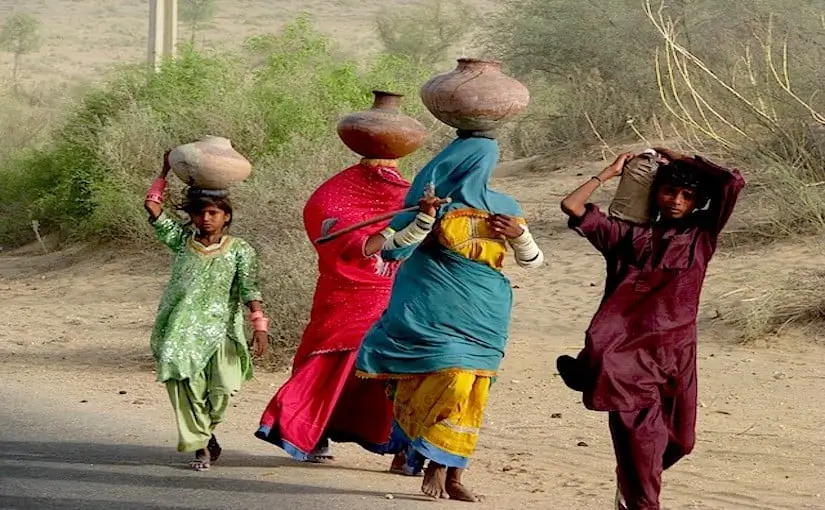In 2014, the Indus Consortium embarked on a transformative journey, launching the project “Improving Water Governance and Promoting Water Cooperation” with Oxfam Pakistan’s support. Operating in 48 villages across Sindh and Punjab, the consortium empowered tail-end small growers, collaborated with water associations, and advocated for inclusive policies.
The River Indus’s narrative has undergone significant changes due to water blockages, resulting in floods during heavy rainfall. The historical Sindh-Punjab agreement and large dam construction marked the beginning of water-related challenges. Before these developments, Sindh was greener, and the delta thrived. Today, the water network, comprising three barrages, 14 main canals, and around 40,000 field outlets, is crucial to Sindh’s rural economy.
An informal alliance of tail-end and women farmers was established to advocate for their water rights, contributing to the development of the Sindh Water Policy. Through rigorous research initiatives, including eight studies and two policy reviews, the consortium played a pivotal role in shaping the policy. The water mapping activity in Ali Wah, a subsidiary of the Akram Wah Canal in Badin, monitored water distribution fairness and prevented water grabbing, revitalizing the area after a 15-year drought.
We prioritized Sindh’s provincial water policy, engaging stakeholders through focused group discussions and consultative workshops. Transparent policy papers addressed water scarcity, outdated policies, and theft. Advocacy efforts extended to national platforms, spotlighting farmer issues in Badin through a press conference and media coverage.
Tail-end farmers significantly contributed to the policy during the consultation process, ensuring their voices are heard.
The Sindh Water Policy addresses key aspects: a holistic water vision, transparent information sharing, fair water distribution, democratic water governance, and women farmers’ active involvement. It aims to tackle water scarcity amid population growth and climate change, promoting sustainable water management and agricultural practices for a resilient future.
The journey towards the formulation of the Sindh Water Policy witnessed a positive connection with the Sindh Irrigation Department (SIDA) and the Government of Sindh. Tail-end farmers significantly contributed to the policy during the consultation process. The Sindh government acknowledged the Indus Consortium’s efforts through an appreciative tweet, further endorsed by official letters from the Irrigation Department and the Planning and Development Department.
A new chapter has opened: “Influencing the Sindh Water Policy and its Nexus with Disaster Risk Reduction (DRR) and Climate Change.” This involves district and provincial dialogues, culminating in a National Water Conference. The objective is to shape the policy and develop a cross-sectorial implementation framework, disseminating information to tail-end farmers and ensuring their active involvement in sustainable water management. The journey continues, driven by the commitment to make a lasting impact on water policy, disaster risk reduction, and climate change adaptation in the region.

This is an exceptional piece of information. Awesome! I encourage the author to please cover more topics related to this.
Thank you
Over recent years, the people of Sindh have borne the brunt of climate change, grappling with recurring droughts and devastating floods. Additionally, persistent issues such as water scarcity and barren lands have marginalized communities, exacerbating their challenges. Without effective government management, the trajectory of the future seems alarmingly reminiscent of the past. Therefore, it’s both heartening and hopeful to witness proactive organizations like the Indus Consortium and Oxfam advocating for the rights of these communities and amplifying their voices to policymakers. Their efforts represent a beacon of hope amidst adversity. Well done!
Thank you for the detailed review.
it is such a thought provoking article that addresses the attention towards the delimma that Sindh is facing. I really appreciate the writer for bringing into light all such matters that need to be resolved . The indus consortium and oxfam are like rays of Hooe advocating the rights of these communities
My appreciation goes to the writer who penned the issue and played her vital role for the progression !
Thank you for the detailed review and appreciation
Very Nice Qurat ! i have shared on facebook . worth sharing
Thank you-Dear